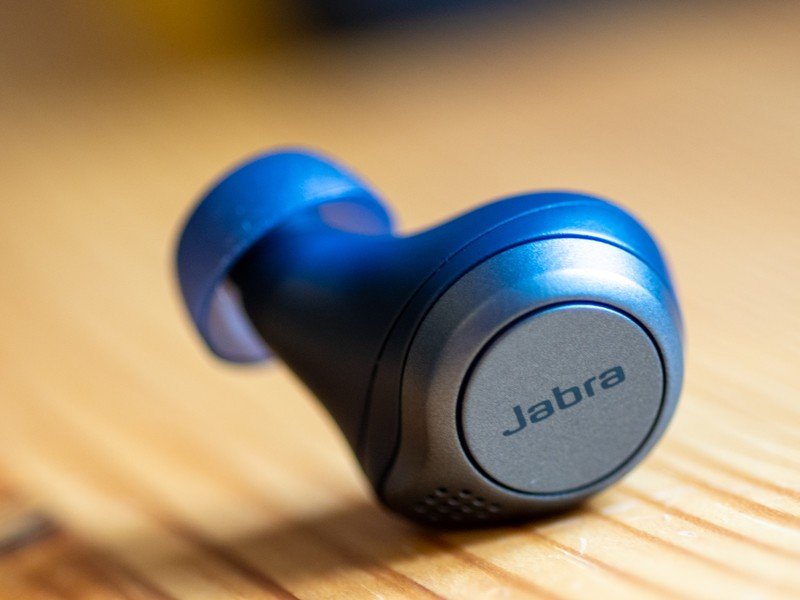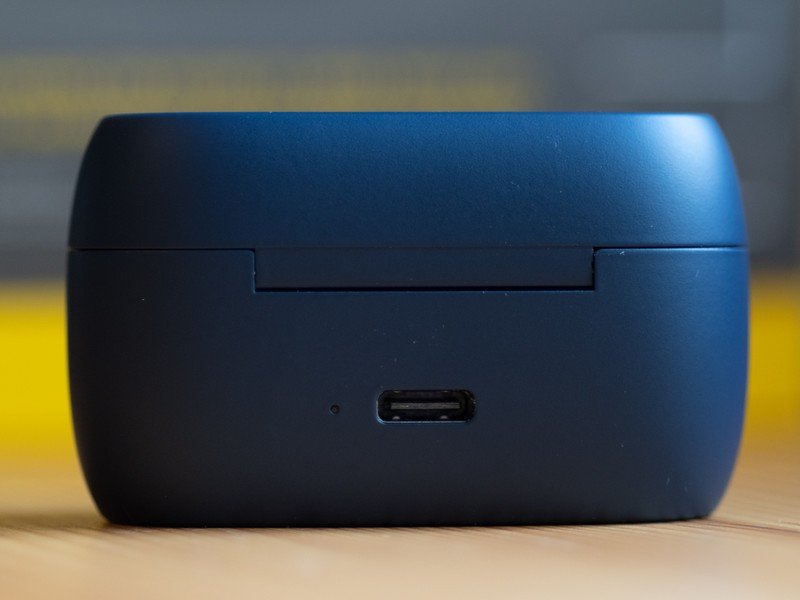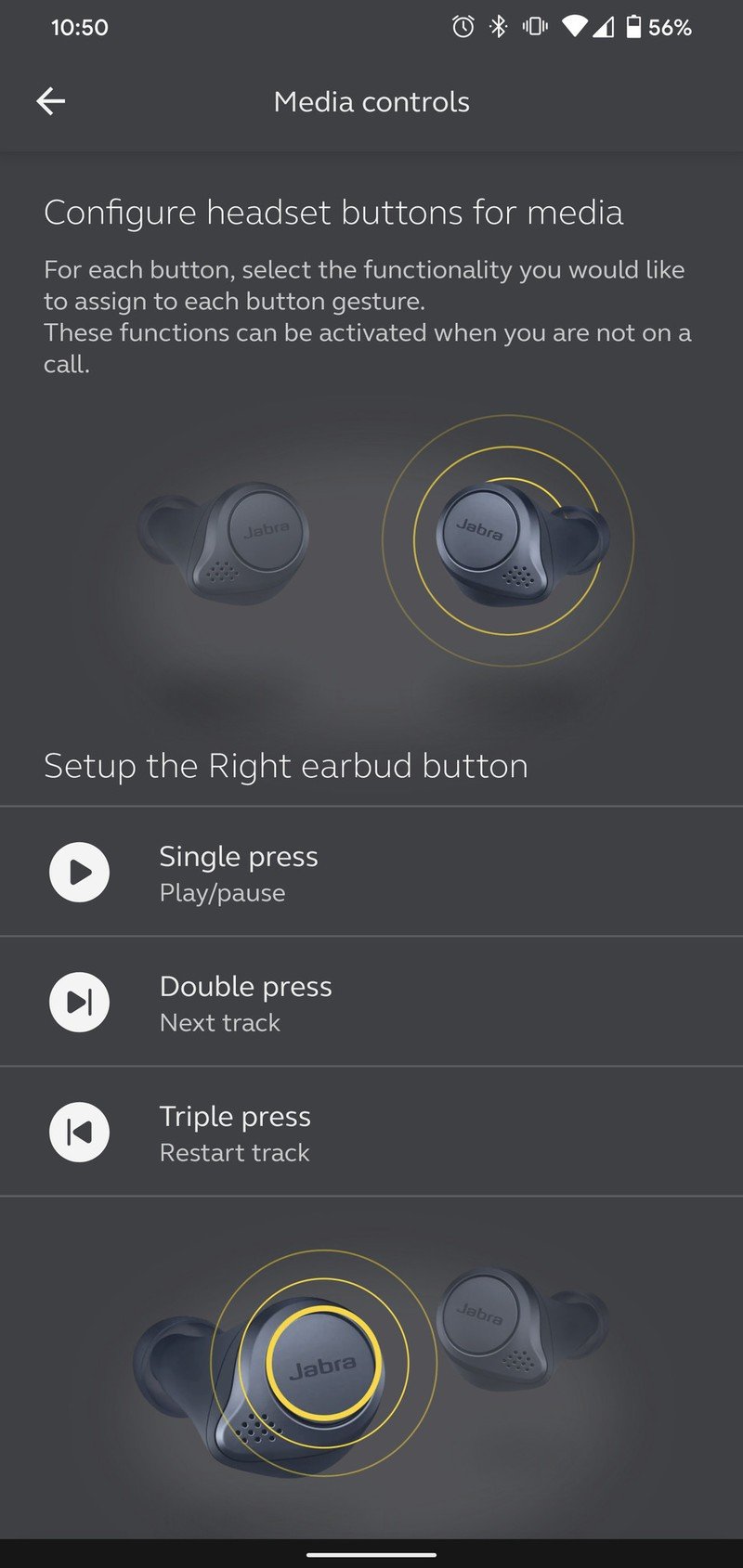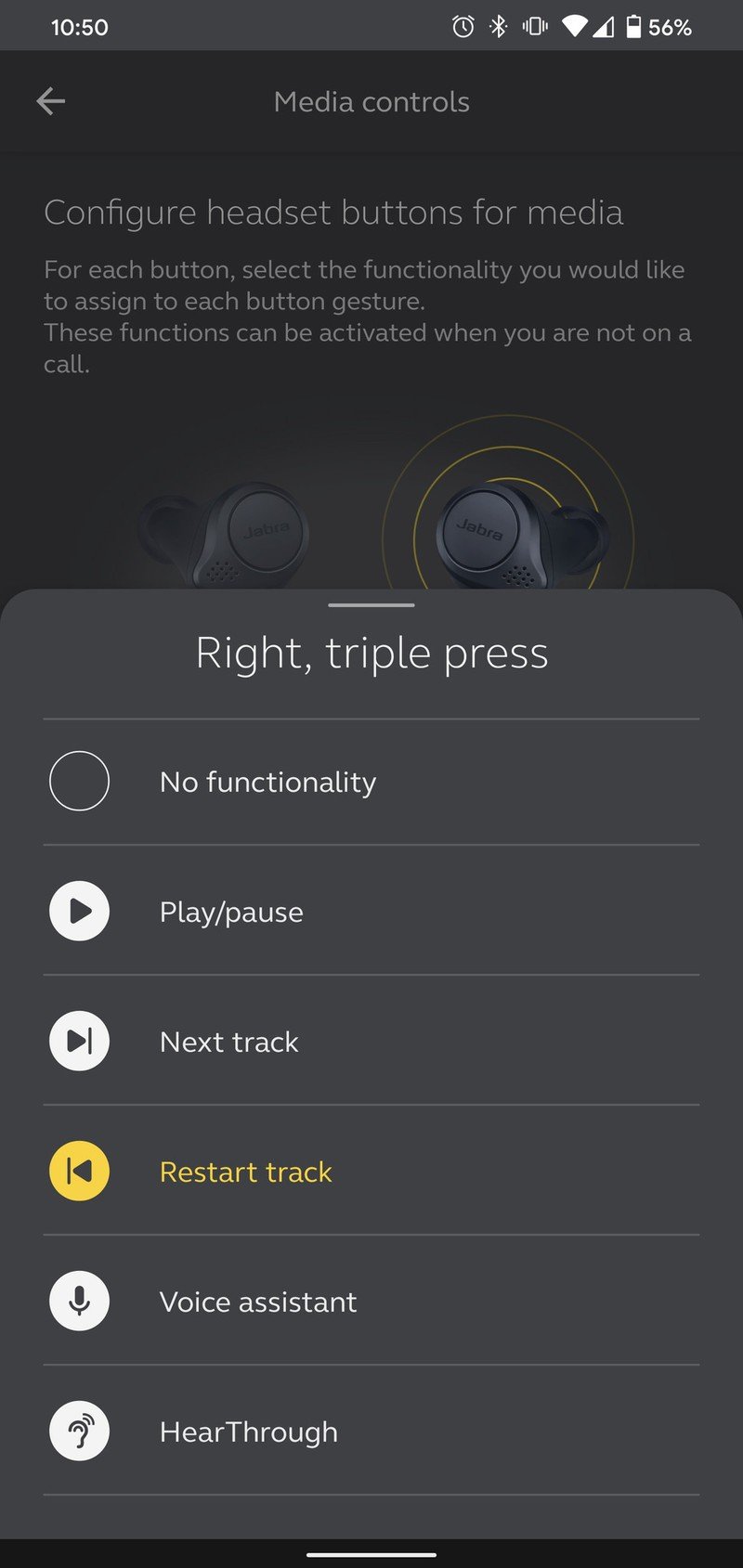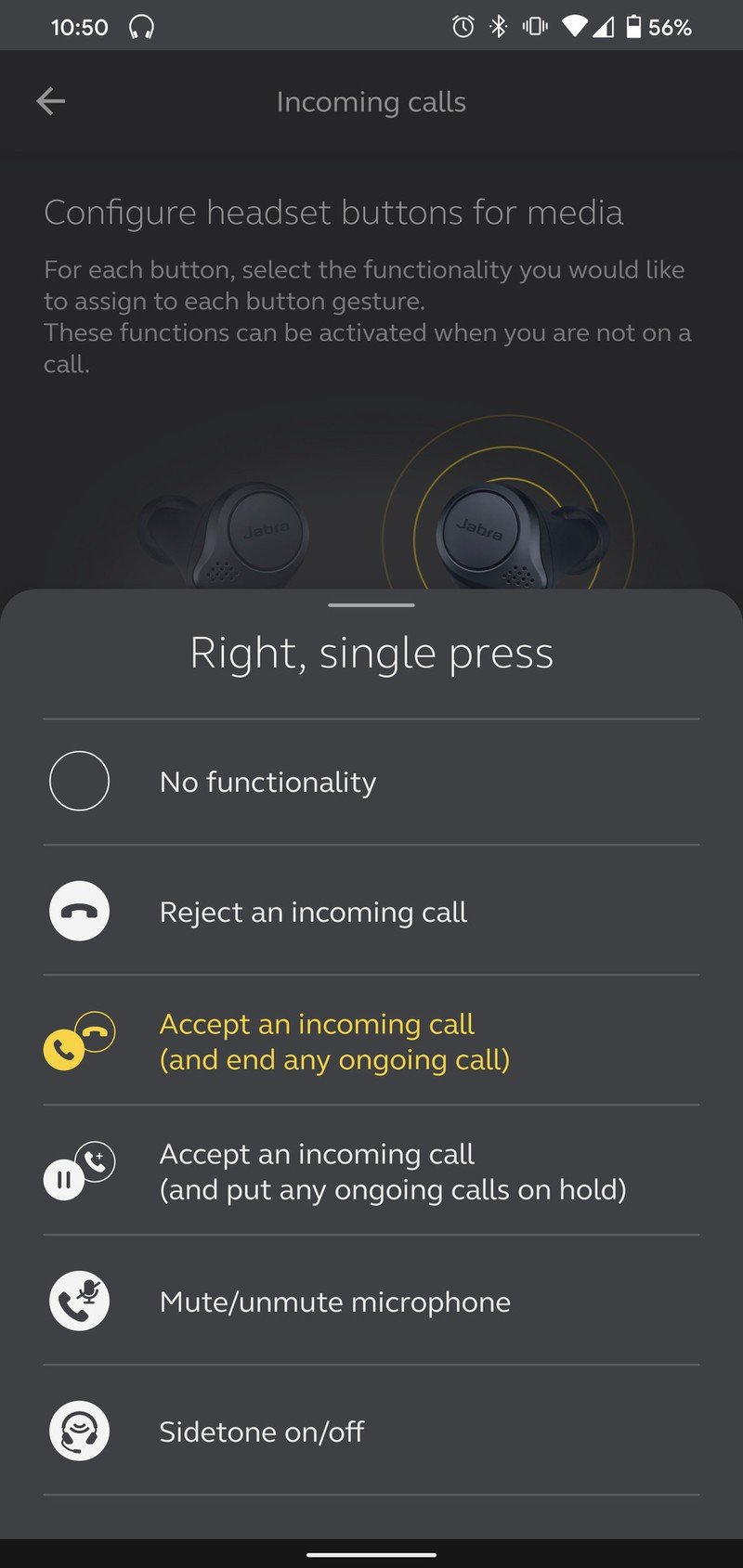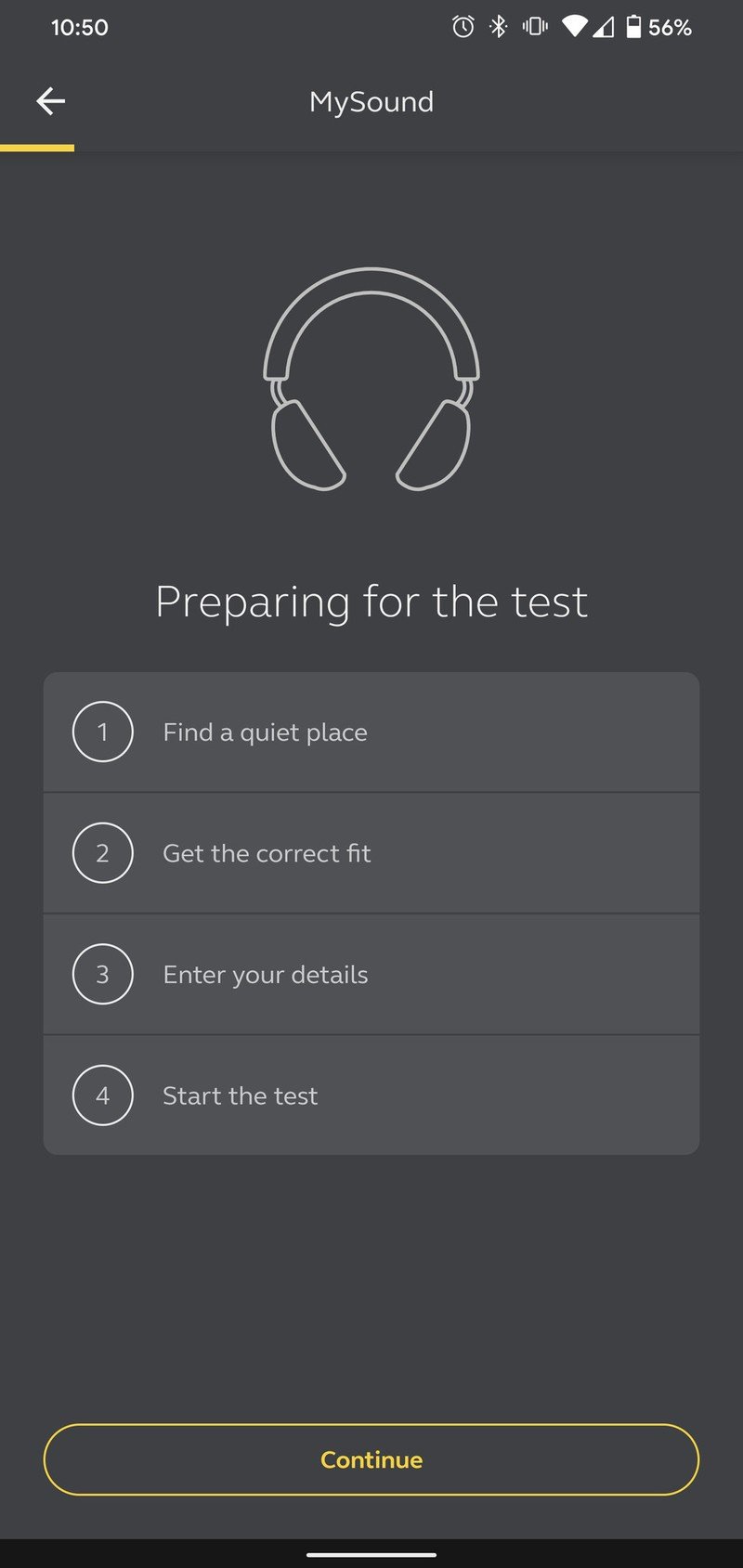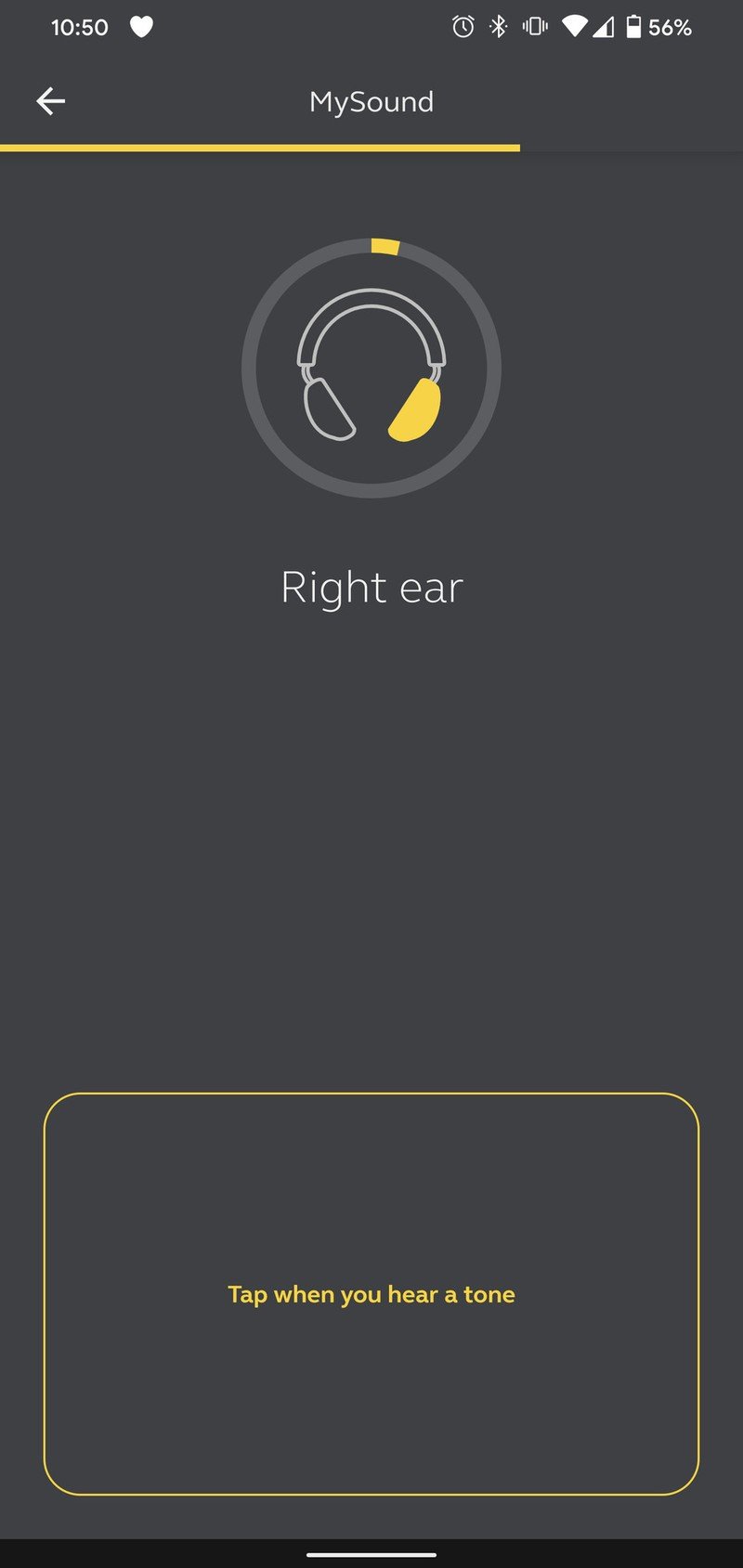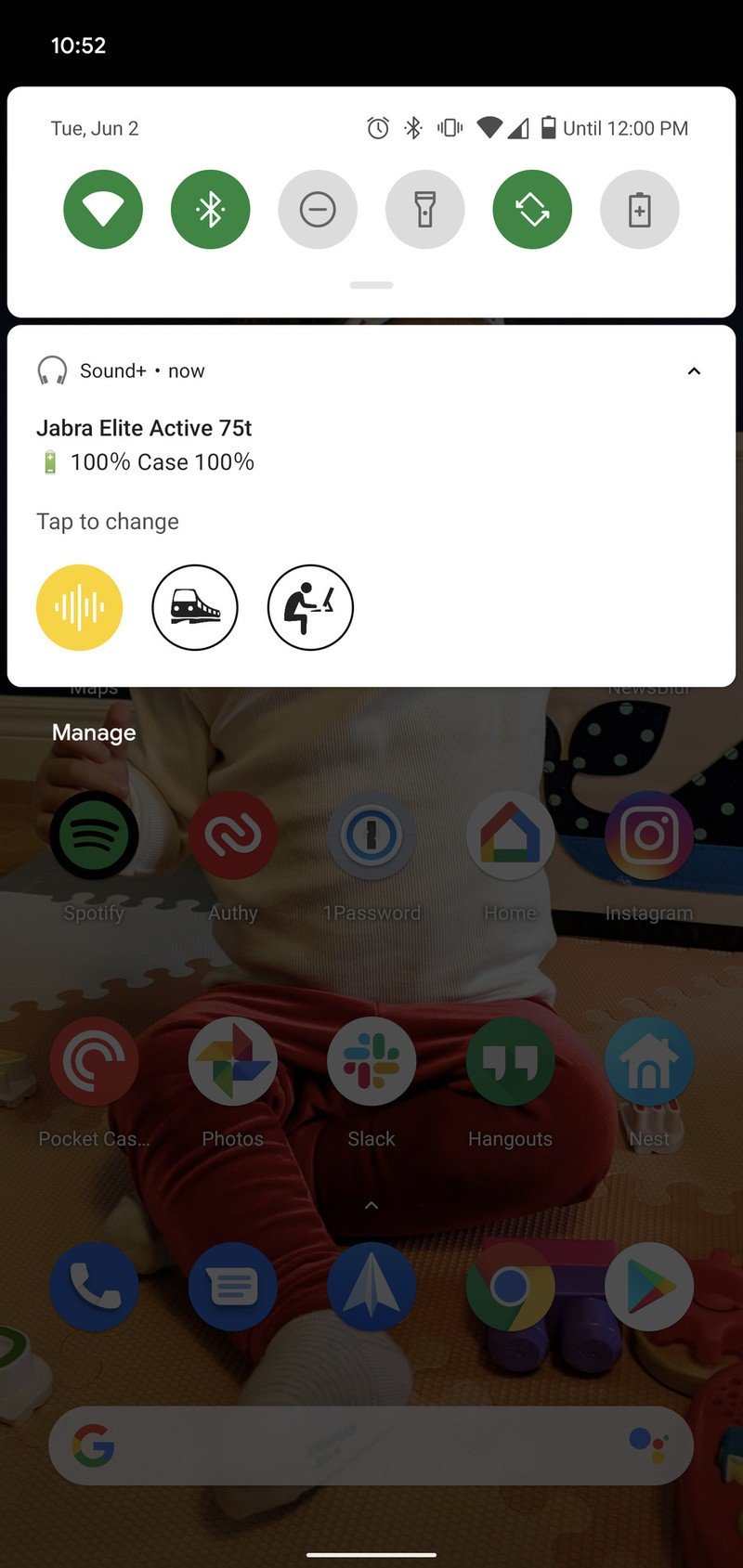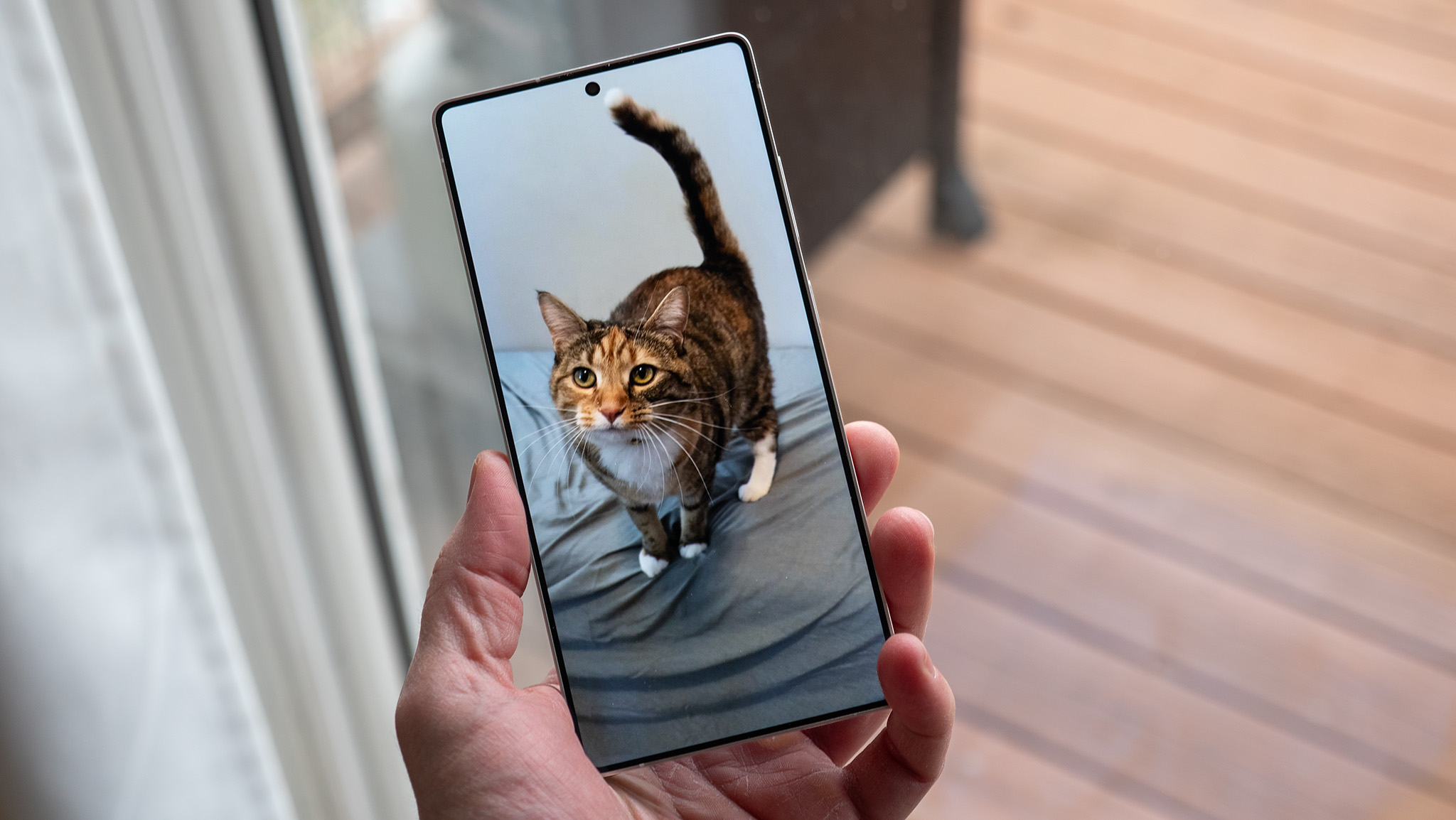Android Central Verdict
Bottom line: Jabra's Elite Active 75t are among the best true wireless earbuds you can buy, and are perfect companions for your next run or jam session alike.
Pros
- +
Fully waterproof
- +
Big, powerful sound
- +
Formidable battery life
- +
Solid connectivity (for me)
- +
Extremely comfortable
Cons
- -
Can only use right earbud for mono mode
- -
Wireless charging case costs extra
- -
No active noise cancelation
- -
Lots of complaints of connectivity problems out there
Why you can trust Android Central
When I reviewed the Jabra Elite 75t late last year, I knew they would be my new favorite true wireless earbuds — and I was right. They were comfortable, had great sound quality, solid connectivity, an awesome case, and a long-lasting battery. Plus, the microphones were fantastic for calls, and the case was small enough to fit into a coin pocket for easy transportability.
But the Elite Active 75t, a slightly modified version of the originals with a higher water resistance rating and a rubberized coating that makes them less likely to slip out of hands and ears, have actually become my go-to TWEs in 2020. I started with a pre-production pair and have now been using a shipping version since early March, and though they inherit the same software limitations as their less rugged sibling, the Active 75t are still worth the extra $20 if you, um, sweat the longevity.
Jabra Elite Active 75t Review
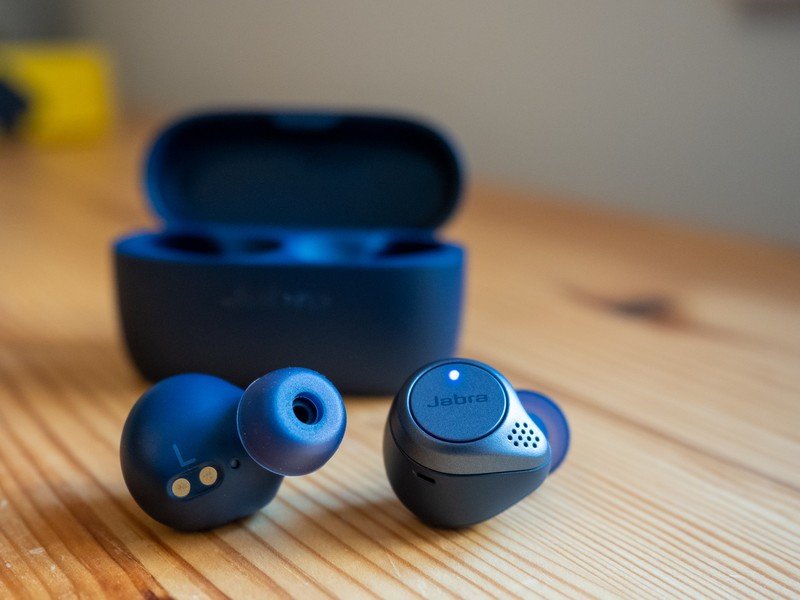
Take everything I said about the Elite 75t and add a nice, soft-touch texture, a bit of additional fortification against water, and a couple new colorways, and you have the Elite Active 75t. And that's not a bad thing.
The Elite 75t walked so these can run.
I really like the original Elite 75t — until I got my hands on these, they were my daily driver headphones — but these are better. They're not just for athletes, either: the rubberized finish makes it easier to take the buds out of the case and remove them from your ears. It seems like a small change, but when you're taking the buds out of your ear on a regular basis, it becomes a necessity. Add a bit of sweat from a workout or an inundation from a rain storm and you've justified the additional $20 in the price tag right there.
Of course, the real advantage here is that it can withstand that inundation of water; the Elite Active 75t has an IP57 rating, meaning that like many modern smartphones it can be submerged in up to a meter of water for 30 minutes without damaging the internal components. The Elite 75t is rated IP55, which limits its water exposure to jets of water from any angle — still likely to tough out a storm, but not much more than that.
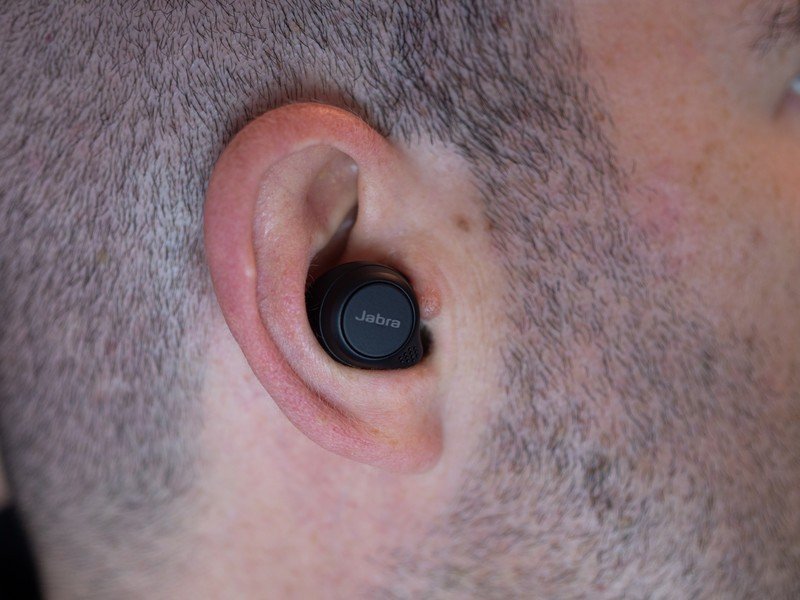
Sweat is corrosive, though, so if you use the Elite Active 75t while working out, you'll need to clean them off after each use to ensure a prolonged buildup doesn't damage the components over time. I point this out because while I've never had any Jabra earbuds stop working on me, Reddit is full of stories of unhappy customers receiving pairs that flat-out stop working after a few days or, more frustratingly, experience constant connectivity problems. I actually think the Elite 75t series, which includes the Active 75t, have among the strongest Bluetooth performance I've experienced on a pair of true wireless earbuds, but be aware that there is no shortage of horror stories.
These are among the most comfortable earbuds I've ever worn — and they isolate brilliantly.
These days, there are many, many workout-optimized earbuds to choose from, so why should you pay $200 for these? For starters, the fit is impeccable; I've done every sort of exercise while wearing them and they don't budge. That's an improvement over the larger Elite Active 65t which, while comfortable, would eventually shift and lose their seal with extended movement. Jabra shrunk the Elite Active 75t down by nearly 30%, making them easier to fit in a variety of ear sizes and shapes, and the three silicone tip sizes should meet most peoples' needs (I have big ears and use the largest size, for what it's worth).
Get the latest news from Android Central, your trusted companion in the world of Android
Like the regular Elite 75t, the Active variant has a bass-heavy sound that can be fatiguing for some genres — I had to EQ the low-end down a bit to prevent the bass from overwhelming the rest of the song when listening to most modern dance or R&B tunes — but it should be fine for the vast majority of use cases without any tweaks. (I did find that the Auto EQ settings for the Elite 75t in Wavelet did a good job balancing the buds' booming tendencies).
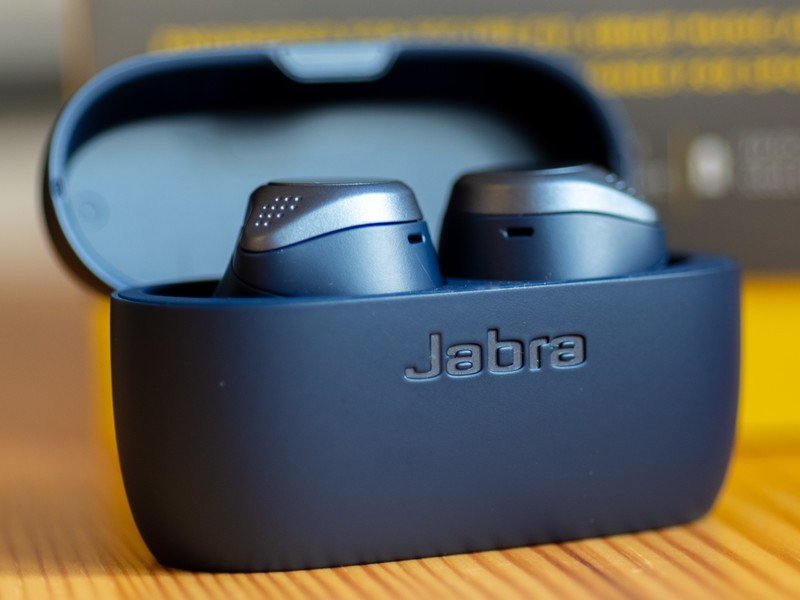
Source: Daniel Bader / Android Central
In the middle of my review period, Jabra updated its app to include two features, MySound and MyControls, that were initially announced back at CES in January. The former personalizes the earbuds' sound by doing what amounts to a very basic hearing test — you press a button when you can hear an escalating set of frequencies — to customize the built-in EQ. Unlike Wavelet, the tool I linked to above, MySound changed very little about the 75t's sound. I can point to a slight softening of the low-end, but not enough to change the sound signature, but the beauty of a feature like this is that your mileage will vary.
It's worth remembering, though, that MySound isn't meant to operate as an equalizer the way Wavelet is; instead, it's identifying the frequencies that a listener can and can't identify to squash the wavelength a little bit, to make all sound a bit more palatable. So if your hearing is already quite good, don't expect to hear much difference.
Source: Daniel Bader / Android Central
Source: Daniel Bader / Android Central
MyControls is a bit more useful, letting you retrain the single-, double-, or triple-press functions on each earbud to suit your needs. I changed the default for the right earbud, which is the one I use the most, to skip the current track with a double-press and return to the previous track with a triple. That lets me perform most of the important functions with just one earbud in.
Unfortunately, a feature that Jabra promised back at CES, the ability to use either the left or right earbud independently, didn't come to fruition. Here's the statement a representative sent me about the decision:
In development, Jabra was not pleased with the user experience during testing, so they chose to omit this feature from the update. Jabra is continuing development and testing to accommodate future products. Users will still be able to configure the button functions on the left and right earbud to meet their personal preferences using MyControls.
Basically, Jabra designed the earbuds to thread the left side's signal through the right one and down to the phone instead of, like many modern headphones, communicating directly with the connected device. I'll be honest, I'm really not happy about this revelation, and I docked the headphones half a star because of it.
But I primarily like the Elite Active 75t for the case as much as for the earbuds themselves. While the buds get around six hours per charge, there are more than three additional top-ups available in a fully-charged case, and that's with making it 20% smaller than its predecessor. The lid opens and closes with a satisfying thunk, and the magnets that snap in the buds are perfectly calibrated. I have no complaints at all about the case other than the previously-announced wireless charging-compatible version isn't available yet.
There's no getting around the fact that Jabra has messed up the launch of two very important software features.
Like the Elite 75t, these can connect to two devices at once, and in my experience do so without complaint or glitch. I've cycled between two phones, a phone and a laptop, or a laptop and a tablet, and they've worked well throughout. My only complaint is the lack of AptX compatibility, a benefit primarily for Android phones (hey, that's why you're here, right?) but a significant one nonetheless.
Apple devices benefit from AAC support, but Android users will have to subsist on the lower-quality SBC codec. It's not something you're likely to notice unless you're playing files at quality higher than the typical Spotify or YouTube stream, but it's worth noting nonetheless.
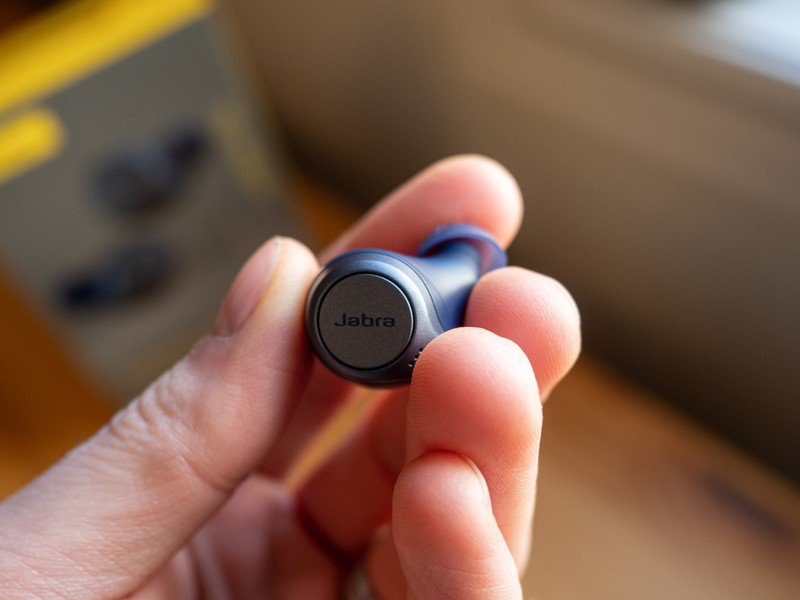
All of the Elite 75t's quality-of-life features are also present on this pair, too: a sensor to detect when one of the buds have been removed from your ear, which automatically pauses the stream; and a transparency mode called "HearThrough" that pipes in audio through the extremely good microphones to make it easier to hear the world around you and converse with people. HearThrough isn't nearly as real-to-life as the AirPods Pro's transparency mode equivalent, it's just as effective. And while I've heard complaints about these having latency issues while watching media on a phone, it's absolutely perfect on every phone and streaming service I've thrown at it.
Call quality is close in quality to the AirPods, and that's pretty hard to accomplish.
Finally, the Elite Active 75t have some of the best microphones you'll find on the market right now — there are four on each bud — which make phone calls sound particularly good, provided you have a strong Bluetooth connection. The surfeit of microphones does an impeccable job canceling out external noise during a phone call; some callers told me they could barely hear the blustery winds I subjected them to during a recent test walk.
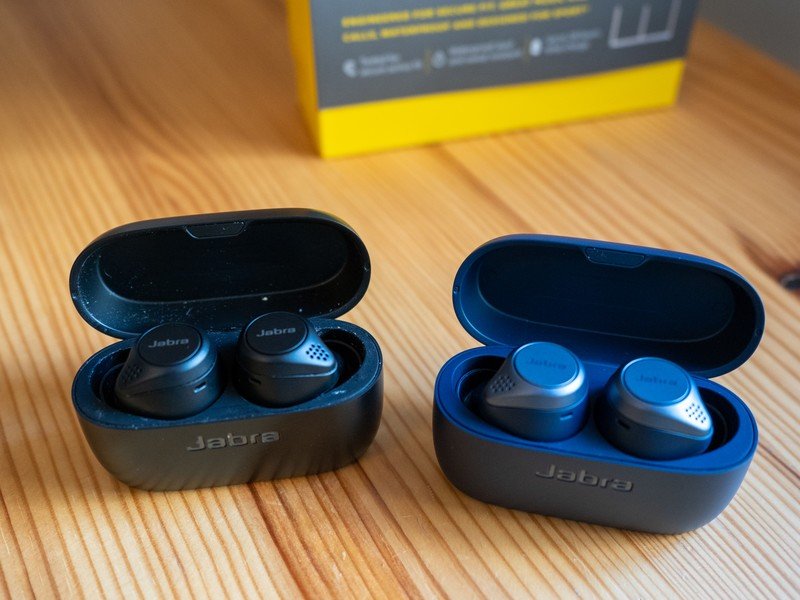
All that's good news, provided you maintain that strong Bluetooth connection. As I said up top, I've never had drop-out issues with my Jabra earbuds, but there are enough concerning stories out there for it to be more than a coincidence. Make sure that you buy these headphones from a retailer that offers refunds, or be prepared to work with Jabra directly in case an issue arises. The good news is that, like the regular Elite 75t, these have a two-year warranty.
But I do have to bring up a couple of points of contention. At $200, these are not cheap, and they lack two features that people are beginning to take for granted at the high-end: a wireless charging case, and active noise cancelation. The former can be solved by purchasing a $230 version that includes the feature, but I've yet to see any of them actually available anywhere to buy.
The latter, noise cancelation, is just something Jabra will need to contend with when designing the next generation. While I'd argue that sports earbuds don't really need ANC, it won't be long before it's an expected feature on most products in the category.
Jabra Elite Active 75t The competition
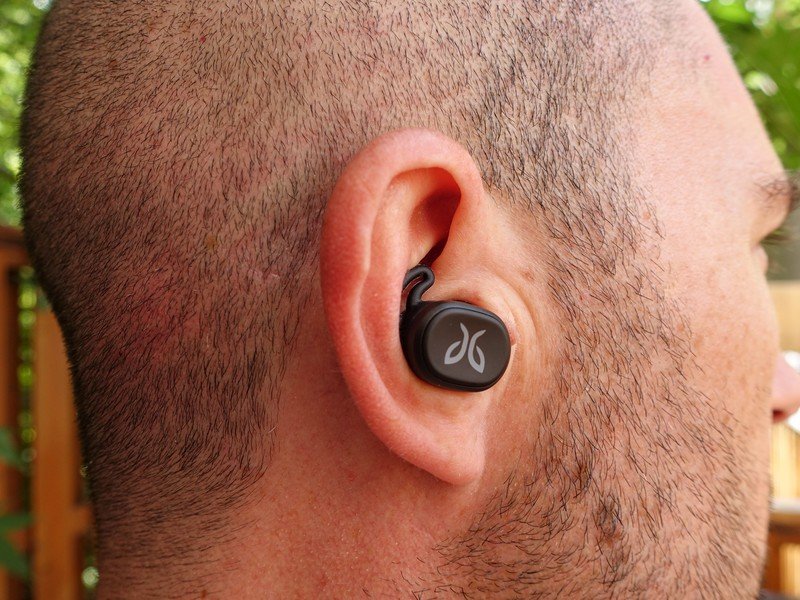
To be honest, the Elite Active 75t's main competitor is its $20-cheaper sibling, the Elite 75t. Unless you need the additional waterproofing, you can probably get away with getting the mainline offering from Jabra. They're identical in almost every other way. On the other hand, I prefer the feel of the Active's rubberized texture, not to mention its superior colors, and the insurance of having an IP57 is worth the $20 premium.
If you want to go even cheaper, and don't mind a slightly larger, less comfortable fit and shorter battery life, 2018's Elite Active 65t are still a fantastic option. They also have dedicated volume buttons, which is a nice touch missing from this year's version.
There are no bad options here, but the Elite Active 75t check the most boxes for me.
These don't have active noise cancelation, which you do get on the $250 AirPods Pro. They're also great for working out, though their IPX4 rating makes them more vulnerable to rain. And while I don't enjoy the AirPods' more relaxed sound profile, they're potentially more comfortable for some people, trading passive isolation for that vaunted noise cancelation. Apple also makes the excellent, but much-bulkier, PowerBeats Pro.
For a bit less money, you can pick up Jaybird's excellent Vista earbuds (above). They offer a similar sound profile to the Elite Actives, though they're not quite as subtle on the bass side as Jabra. The Vistas are rated IPX7, which mean they have the same water ingress protection but are not explicitly reinforced against dust. Not a huge deal. I found the Vistas to be super comfortable, though they lack a bunch of amenities, like auto-pause, the Jabras offer.
Should you buy the Jabra Elite Active 75t?
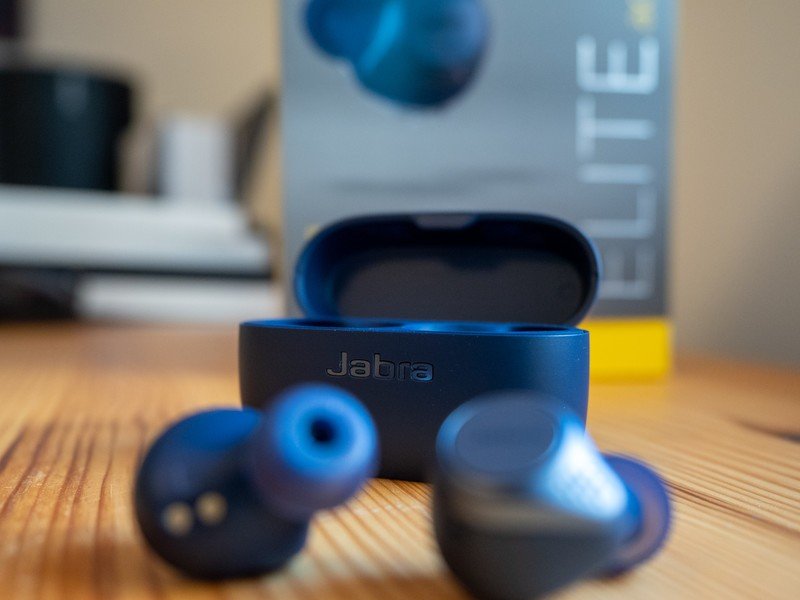
I can't speak highly enough of the Jabra Elite Active 75t. They're not perfect — they lack active noise cancelation, there's no wireless charging, and you can only use the right earbud on its own — but they're close. I have used and abused them every day since the day I picked up a prototype pair at CES in January and replaced them with the retail model a couple of months later.
4 out of 5
Jabra found a way to shrink the Elite 65t series while maintaining the great sound and microphone quality, and managed to improve the battery life and comfort. That's a win-win.
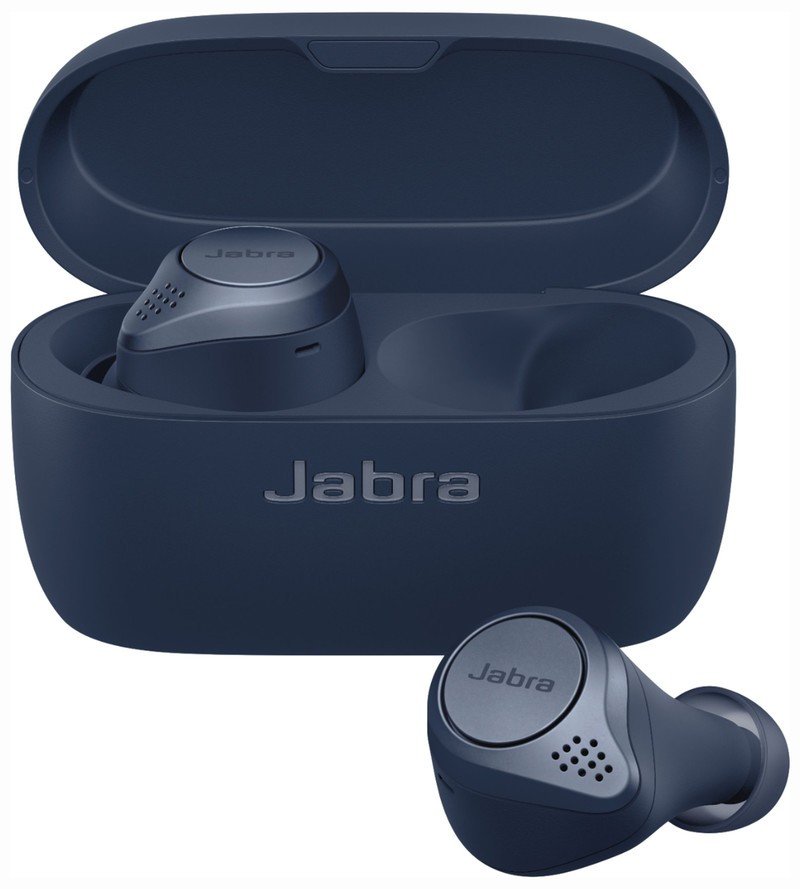
Jabra's Elite Active 75t are among the best true wireless earbuds you can buy, and are perfect companions for your next run or jam session alike.

Daniel Bader was a former Android Central Editor-in-Chief and Executive Editor for iMore and Windows Central.

